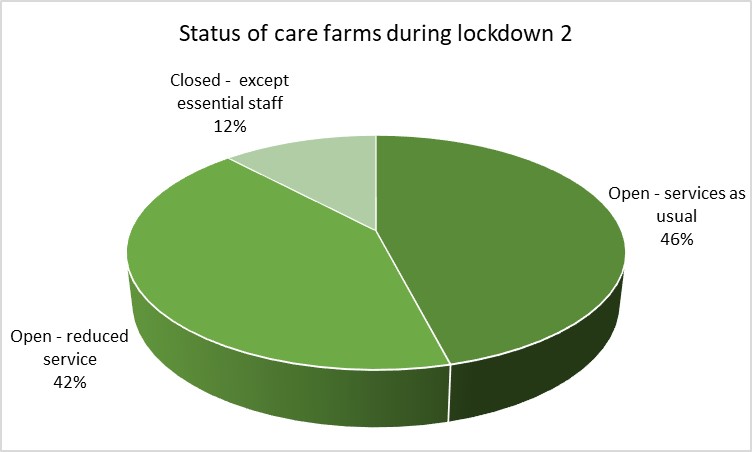
| Earlier on this week, we sent out a link to a short survey in our newsletter and on Twitter and Facebook asking care farms and green care sites about their intentions to remain either open or closed over this next month of lockdown. As you can imagine, the team have been getting lots of emails and phone calls about this and the main question asked is, “What’s everyone else doing?”. A big thank you to those care farms and green care sites that took part in our snapshot #lockdown2 survey to help us answer that question and also to help us understand how the second lockdown is affecting care farming services. Although this is not definitive, the answers do give us some insight as to what is going on in our sector and it mirrors the emails from care farmers that we have been receiving this week.  The majority of care farms (who responded) (86%) are remaining open to service users in some capacity over the lockdown period. Of those, 46% of care farms are open as usual (with staff, volunteers and service users attending under social distancing measures) and 42% are open but in a reduced capacity (with fewer staff, volunteers or service users attending, again under social distancing measures); 12% however are closed to service users, with only essential staff attending to care for livestock and/or provide essential site maintenance. We hope you find this useful, although do remember it is not recommendation – you need to consider your own circumstances carefully and balance up these against the needs of those attending your site. Whatever you decide to do, we send you our best wishes and please remember that there’s loads of helpful resources available on the Social Farms & Gardens website COVID-19 resource page, on our Twitter feed and the Facebook group. |









